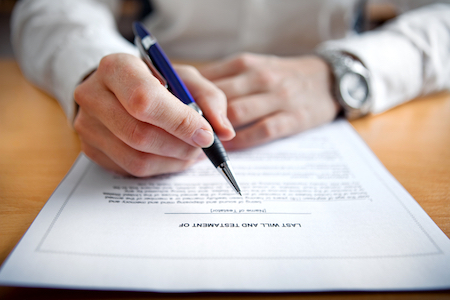In the aftermath of the death of a family member, friend or colleague, you may be entitled to a portion of their belongings or estate.
Unfortunately, depending on how precise and current the deceased’s will was, there may be some uncertainty over whether the will properly represents their final wishes. The wording used in the will is misleading, mistaken or misunderstood.
These situations can result in disputes about how significant items of wealth or property are to be distributed.
What is the legal procedure when it appears that there are mistakes and errors in a will, or how the deceased’s intentions should be determined?
The legal process
A will goes into effect immediately upon the death of the individual. This means that the legal situation changes depending on the precise time when the mistake is discovered.
If the mistake is discovered prior to the death of the testator, they have the opportunity to clarify or remove parts of the will. It is common for a will to go through several different iterations. The problem comes when it seems that there are errors or incomplete information when the testator has passed on. It is then up to the legal system to determine how best to carry out the deceased’s intended wishes.
Only people who have a direct, financial interest in the delegation of assets are able to question the validity or details of a will.
When can a will be thrown out?
A will can be rejected if the proper procedure has not been followed, or if the terms of the will were not written in a sound state of mind. For example, if it can be proven that the will was written when the person was suffering from a mental disorder, such as dementia, the validity of the will can be challenged.
Another reason a will could be made invalid is if there is evidence that the person was unduly influenced by someone else into certain decisions.
There are many different reasons for why a will may be thrown out and they all vary from situation to situation, so it is best to consult an Estate Litigation Lawyer for help if you have a specific concern.
Ultimately, there will need to be reasonable evidence to suggest that the will does not accurately reflect the wishes of the deceased.
What should I do if I find an error?
If you believe you are being unfairly treated in the distribution of estate assets, the first and most important step is to consult an Estate Litigation Lawyer who will help give you a complete understanding of your legal rights and remedies.
